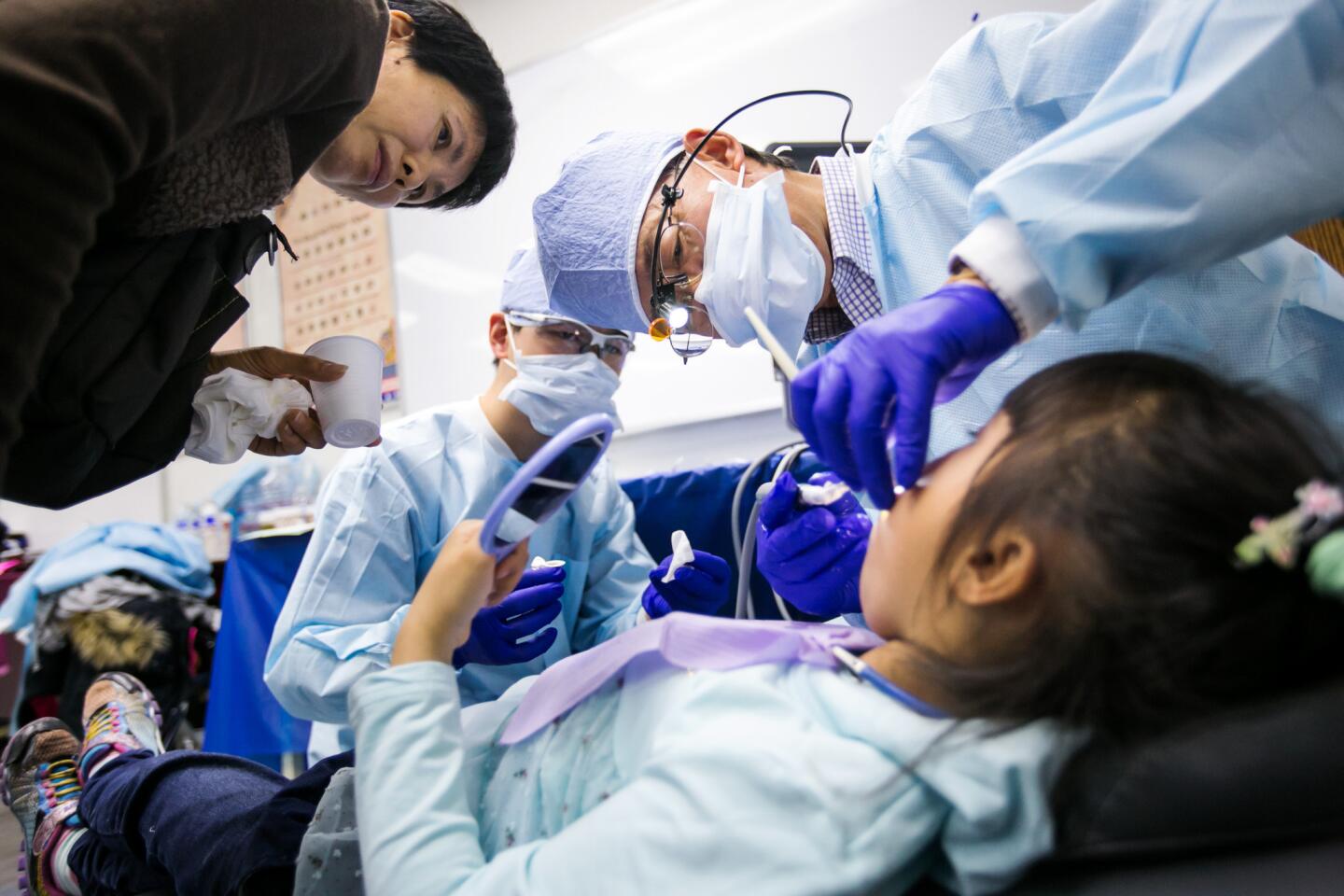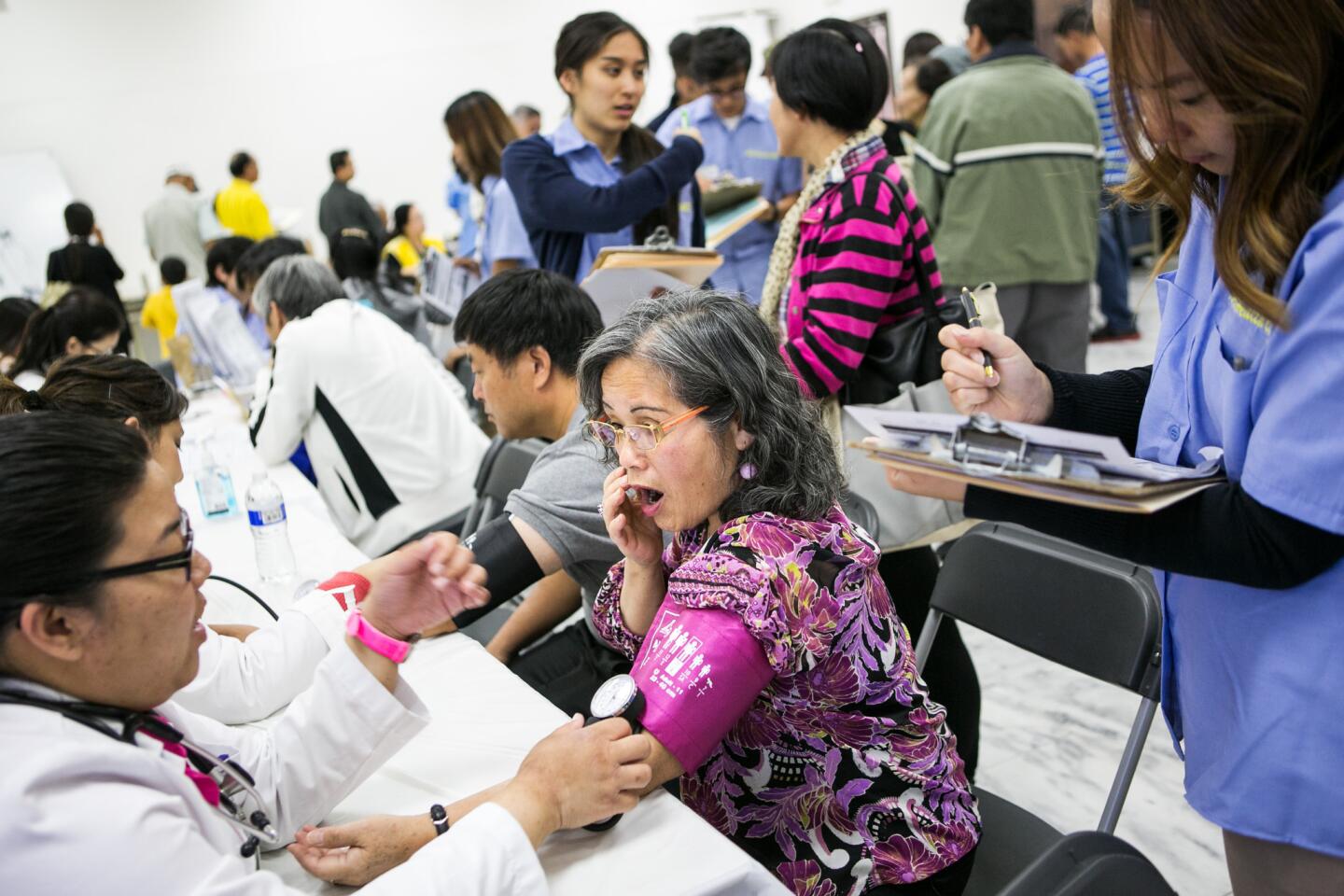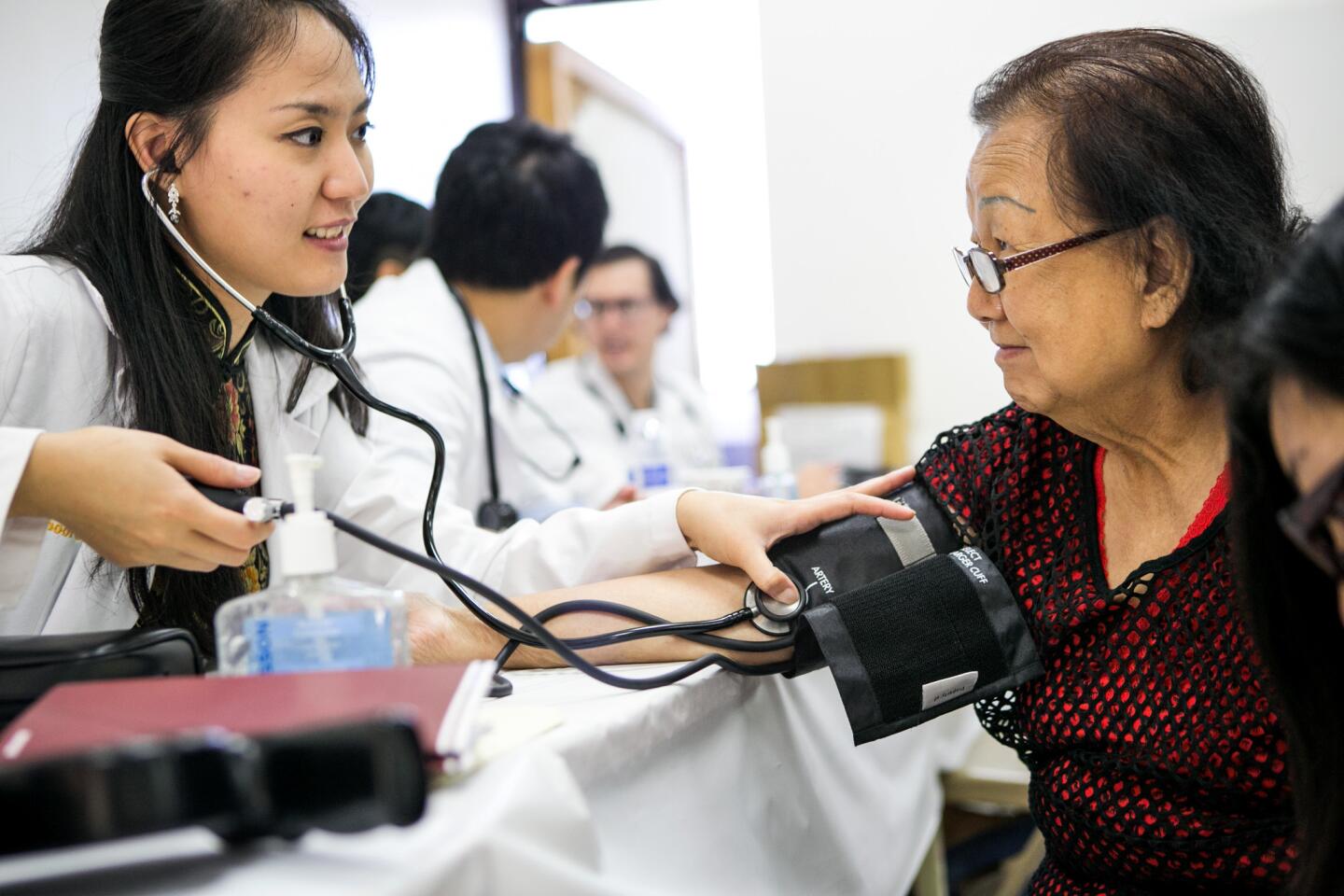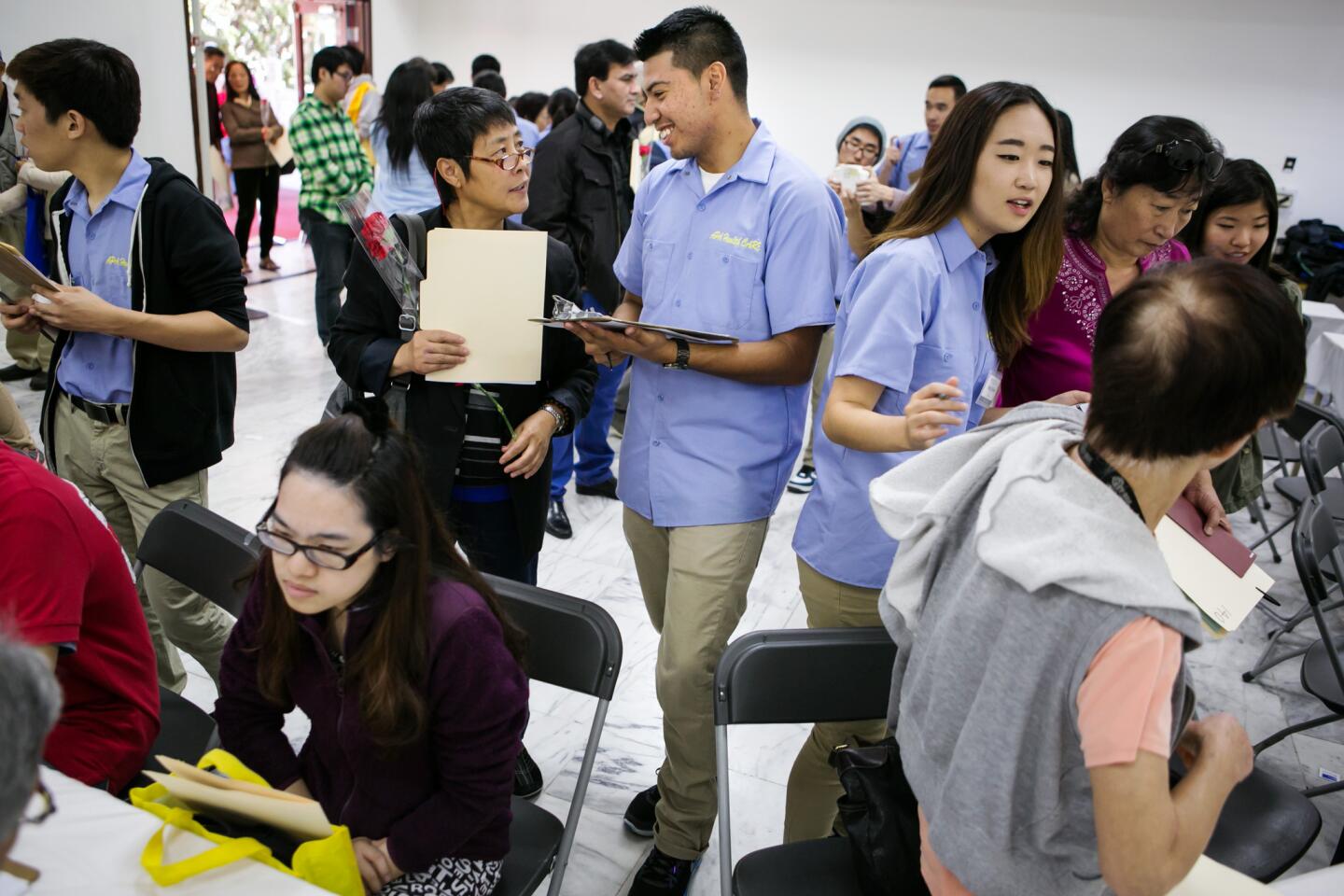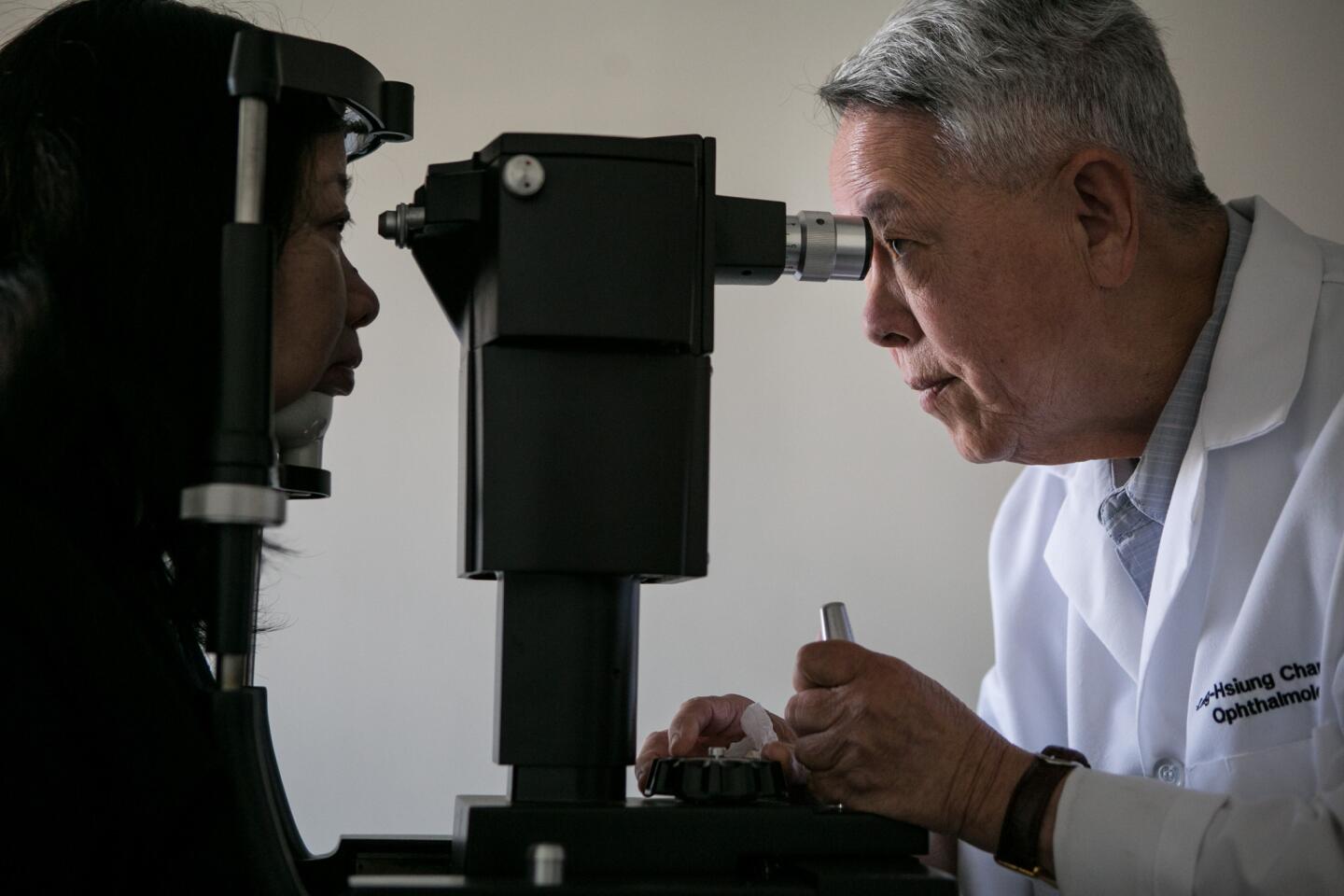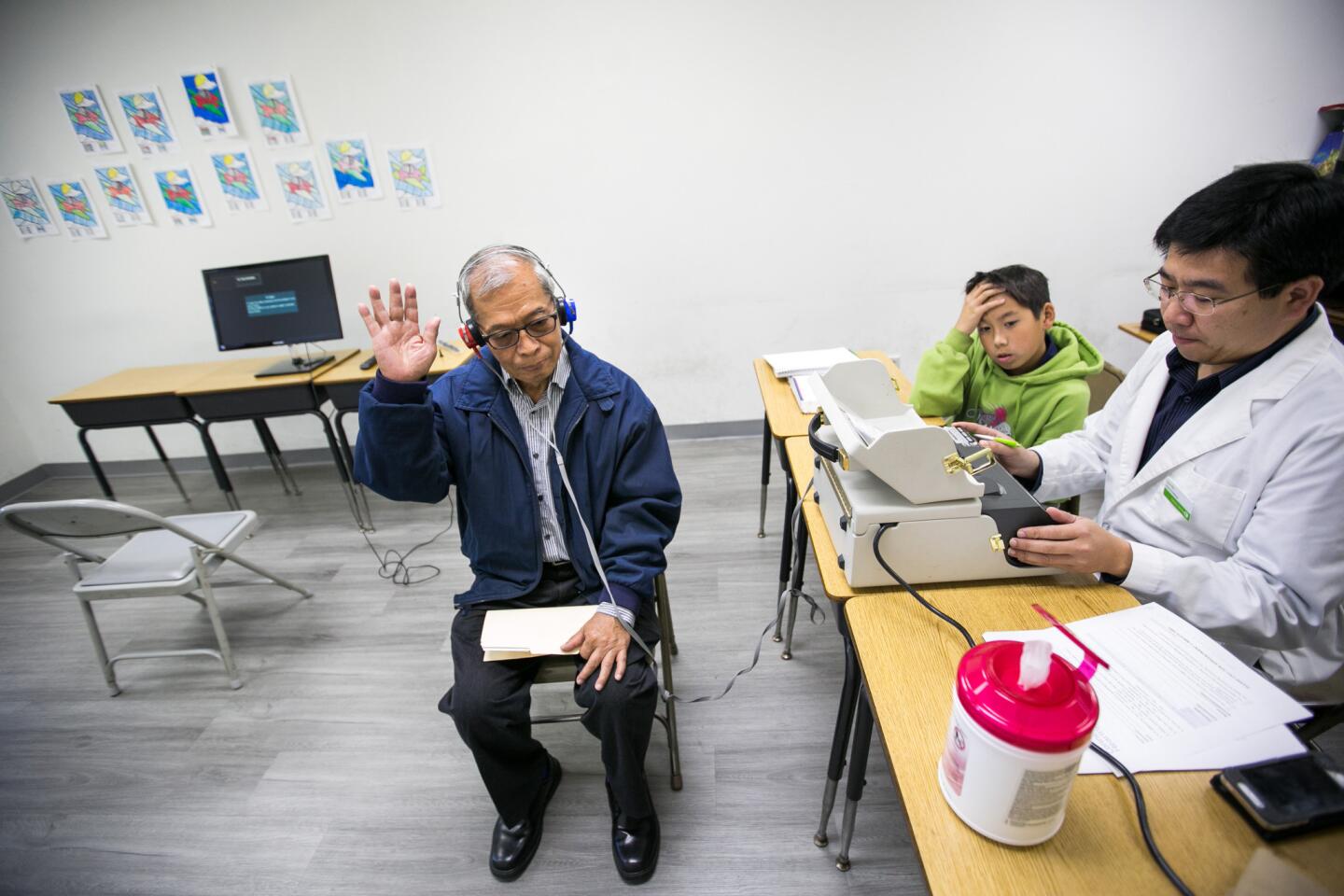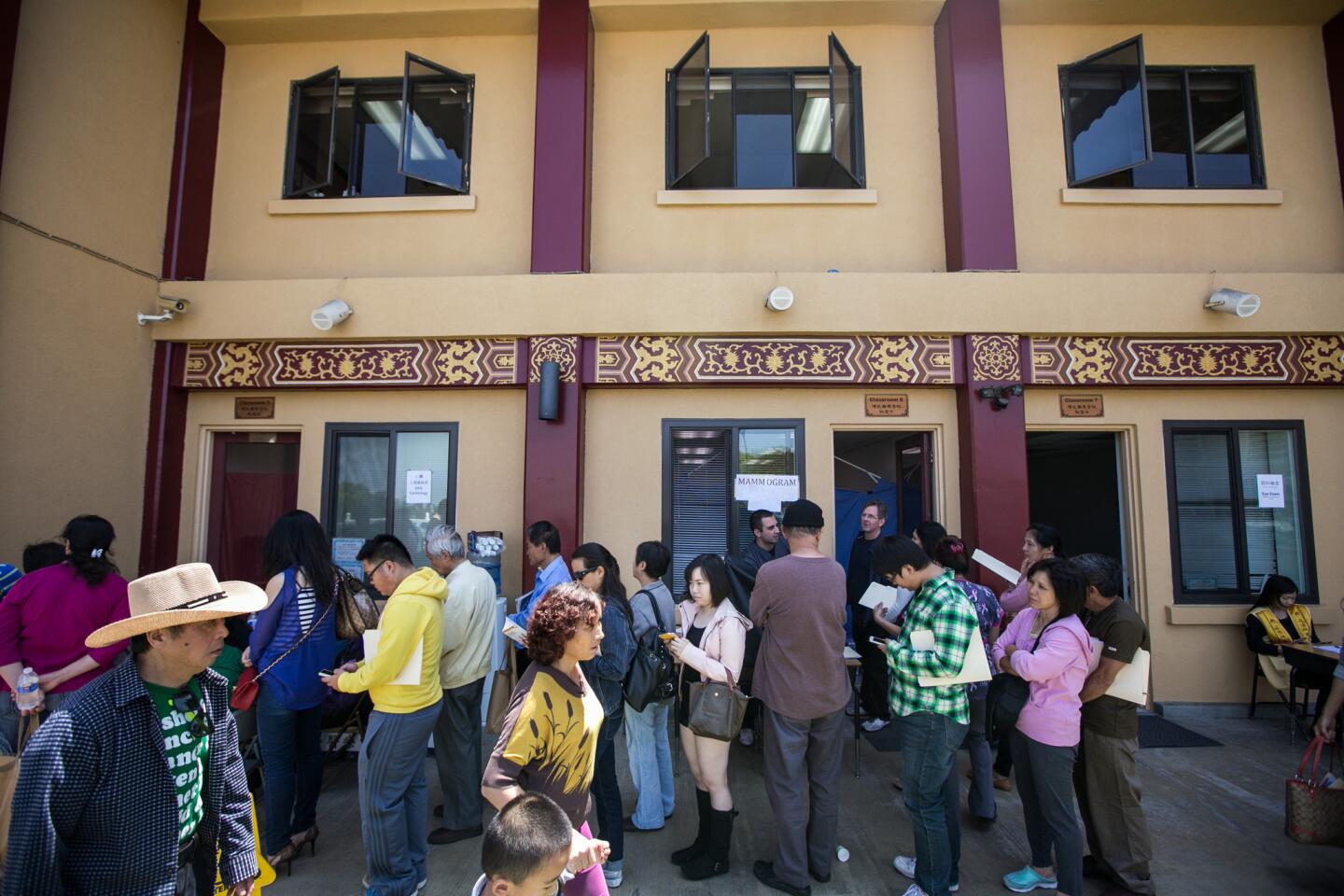Hacienda Heights temple bridges Chinese community, health professionals
- Share via
Waiting to be registered at a health fair at Hsi Lai Temple on Sunday, a group of women exercised, stretching and moving their arms in circles as they complained about the sacrifices required to stay well.
“You can’t eat noodles, fish, shrimp, rice, beef,” said one woman, who asked that her name not be used to protect her medical information. “What am I supposed to eat?
“Exercise,” suggested one of her friends. “Salads,” said another.
“It’s OK as long as you’re healthy,” said Mei Chiu, 74, of West Covina.
“But I’m not healthy! That’s why I’m here,” said the first woman, who had driven from Irvine at 6 a.m. to be first in line.
At the Hacienda Heights temple, classrooms where Buddhism is taught became clinics as about 100 volunteers, doctors and students performed services including dental work, mammograms, electrocardiograms and eye exams. A dozen acupuncturists offered consultations in Chinese medicine and a doctor gave a speech about Hepatitis B in a conference room paneled with ornate lacquered wood.
For uninsured or underemployed immigrants, health fairs are an important introduction to the American health system, said organizer Michelle Chen, who helped start the fair when she was a student at UCLA.
About 300 people attend the fair each year, and more than one-fifth of them are immigrants who have been in the country less than five years, according to statistics kept by the organizers.
“They may not understand how American insurance works, but they do read the Chinese newspaper, which is how we get them to come,” Chen said.
The goal is to improve attendees’ health while introducing them to clinics where they can receive ongoing attention. “Universal healthcare doesn’t mean universal access to health,” she said.
The temple is a good venue because it is trusted by the underserved and undocumented population that the fair is trying to reach, Chen said. Hsi Lai’s monks and volunteers also serve as translators because more than three-quarters of those who attend the fair cannot speak English.
The temple sponsors three health fairs a year, and regularly invites doctors to give health talks, said temple Venerable Hui Dong. Healthcare outreach, he said, delivers on the temple’s four missions: bridging Eastern and Western culture, educating people, promoting Buddhism and charity.
Each patient began the visit with a blood pressure check and blood test. Ping Chen, 66, closed her eyes as the needle went into her arm. She winced and said, “That hurt.”
Chen said she was worried about her cholesterol and her blood pressure, especially with the added stress since her mother moved in with her.
Her former employer offers insurance through a retirement plan, she said, but she finds it easier to go to the fair. That way, she doesn’t have to worry about PPOs, HMOs, copays and deductibles or about showing up with two forms of ID.
“My deductible is really high, so I said forget it,” she said.
The fair, now in its fourth year, is a collaboration between local doctors and the UCLA Asian Pacific American Health Care student group. The hope, said Michelle Chen, is to catch people who are falling through the cracks of the health system: retirees not yet eligible for Medicare, immigrants who don’t understand their insurance plans, and those who don’t have insurance because they work at small businesses that aren’t required to provide it.
------------
FOR THE RECORD
May 11, 6:15 p.m.: An earlier version of this article misidentified UCLA medical resident Tony Hung as Tony Lung.
------------
Tony Hung, a UCLA medical resident who grew up in Arcadia, has been volunteering at the fair since he was a student. The fairs are especially important for Chinese immigrants who value health but are reluctant to seek out experts or purchase insurance, he said:
“There’s a disparity between Eastern and Western understandings of health that takes some clarification. Doctors have to act as the bridge.”
Twitter: @frankshyong
More to Read
Sign up for Essential California
The most important California stories and recommendations in your inbox every morning.
You may occasionally receive promotional content from the Los Angeles Times.
